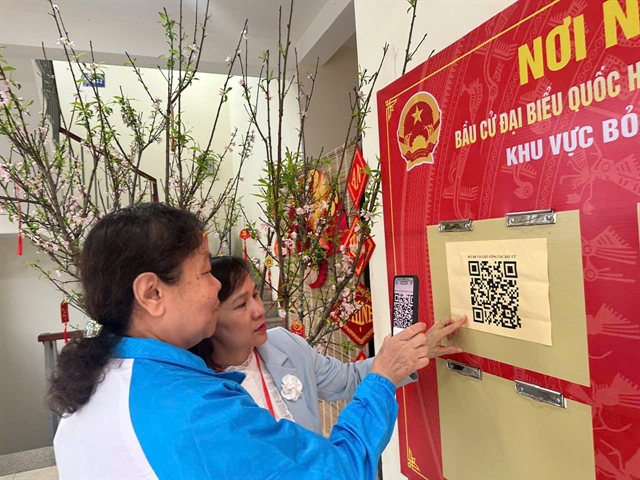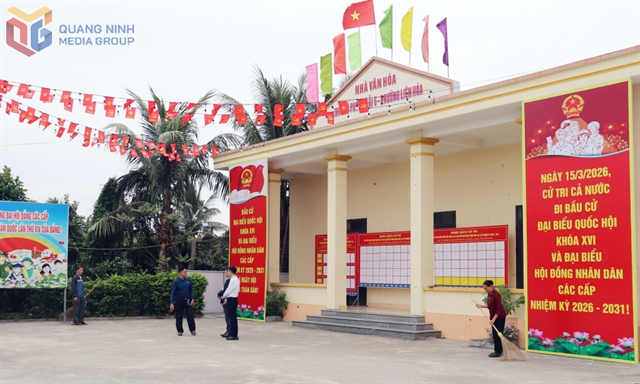 Society
Society


|
| A scientific seminar being held in HCM City on November 10 to discuss “Strategic Directions for Vaccinology Curriculum in Postgraduate Programmes: Needs, Emerging Trends, and Practical Actions”. — Photo courtesy of the organisers |
HCM CITY — A scientific seminar held in HCM City on Monday (November 10) called for developing a vaccinology module for postgraduate students, saying it would strengthen preventive healthcare and support lifelong immunisation programmes to meet the needs of an ageing society.
“Strategic Directions for Vaccinology Curriculum in Postgraduate Programmes: Needs, Emerging Trends, and Practical Actions” organised by the University of Medicine and Pharmacy at HCM City (UMP HCMC) and GSK Pharma Việt Nam Company Limited (GSK Việt Nam) attracted delegates from health organisations, international experts and medical university chiefs from across the country.
Assoc. Prof. Ngô Quốc Đạt, rector of UMP HCMC, said the seminar sought to discuss the development of a postgraduate vaccinology curriculum to strengthen preventive healthcare and promote a sustainable health system as Việt Nam’s population ages rapidly.
“Many countries have included vaccinology in medical education to enhance healthcare professionals’ knowledge and skills in immunisation counselling and practice.”
Việt Nam has around 12 million people aged 60 and above, a figure projected to rise to 21 million by 2035.
The country’s life expectancy is around 74 years, but healthy life expectancy remains at around 65, meaning most people spend nearly a decade in poor health.

|
| Assoc. Prof. Ngô Quốc Đạt, rector of the HCMC University of Medicine and Pharmacy, speaks at the seminar. — Photo Courtesy of the organisers |
Experts said this makes preventive healthcare, particularly immunisation, increasingly vital.
Professor Sir Jonathan Van-Tam, emeritus professor at the University of Nottingham School of Medicine and former deputy chief medical officer for England, gave insights into the UK’s vaccination strategies and vaccinology training.
Adult immunisation could generate up to 19 times the value of the initial investment when considering its overall economic and social benefits, he said.
“Việt Nam is taking an important step by prioritising preventive medicine and promoting life-course immunisation.”
Experts at the seminar said the new curriculum would cover next-generation vaccines and the use of artificial intelligence in vaccine research and epidemiological surveillance to enhance the effectiveness of disease prevention.
In the afternoon session more than 400 students, including postgraduate learners, participated in discussions on fostering innovative thinking and adaptive skills among healthcare professionals.
As part of its efforts to promote healthy ageing, the university will also host another workshop, titled “Effective Vaccination Strategies for an Ageing World,” on Tuesday. It will focus on disease prevention, personalised immunisation schedules and adult vaccination guidelines.
Assoc. Prof. Phùng Nguyễn Thế Nguyên, dean of the School of Medicine at UMP HCMC, said collaboration with GSK Việt Nam and experts such as Van-Tam would give future doctors access to updated international knowledge on immunisation and preventive medicine.
Dr. Phạm Thị Mỹ Liên, president of GSK Việt Nam, said the company is proud to support the university in integrating vaccinology into medical training.
“Embedding vaccine modules in medical education will help build a solid foundation for future preventive medicine, empowering doctors to incorporate vaccination into patient care, especially for older adults and people with chronic conditions.”
The vaccinology and virology curriculum is expected to be incorporated into postgraduate programmes from 2026, with plans to train more than 2,000 doctors each year and expand nationwide by 2027. — VNS




